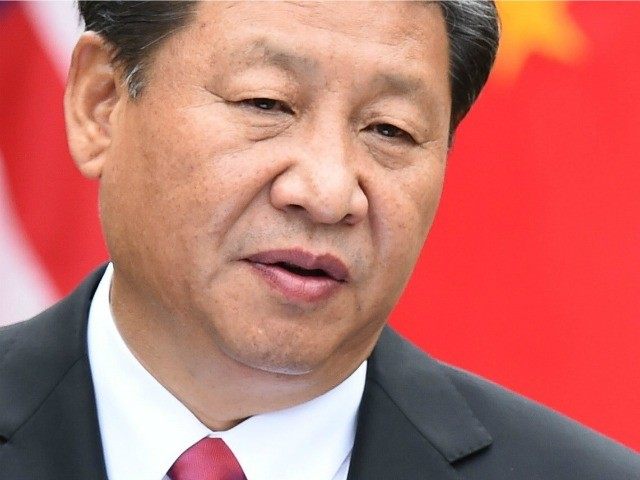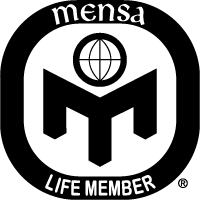Chinese President
Xi Jinping to Visit Iran
by John Hayward 16 Jan 2016
According to a report at Tasnim
News, Chinese President Xi Jinping will make his first visit to Iran
on January 22, at the invitation of Iranian President Hassan Rouhani.
Xi will bring a “high-ranking political and economic
delegation” with him to Tehran, for the purpose of “deepening bilateral,
regional, and international ties as well as improving the level of mutual
cooperation in different political, economic, trade, and cultural fields
between Tehran and Beijing.”
Xi’s visit reportedly will also include signing
Memorandums of Understanding on a variety of joint infrastructure deals.
Tasnim News suggests Iran is looking to reinforce its
ties with China and develop more alliances around the world after the removal
of sanctions as part of its nuclear deal.
According to AFP,
President Xi will also visit Saudi Arabia and Egypt during his trip, pursuing
stable relationships to secure a steady supply of Middle Eastern oil for its
growing economy, and also to develop the massive “New Silk Road”
trade project, formally known as “One Belt One Road.” Iran became a founding
member of the infrastructure bank funding this project immediately after the
nuclear deal was signed.
Willy Lam, professor of politics at Chinese University of
Hong Kong, told AFP China saw an opportunity to increase its presence in the
Middle East because U.S. policy “hasn’t been very successful under Obama.”
A major concern for China’s plans in the Middle East is the conflict brewing between Saudi Arabia and Iran. Professor Zhu Feng of Peking
University’s School of International Studies told AFP that Xi would seek
to play the “role of persuader” between the Saudis and Iranians during his
visit, but China would avoid playing a “main role” in healing the rift between
them.
As China’s state-run Xinhua news agency put it, “Although
China never takes sides, it will be a rare opportunity for China to call for
calm and restraint from both sides.”
Xi Jinping
Xi
Jinping is the president of China,
and will make his first visit to Iran
on January 22.
Note: Jon M. Huntsman
Jr. was an ambassador to China
for the Barack Obama administration,
is a director at the National Committee
on United States-China Relations, and a trustee at the Carnegie Endowment for International Peace (think tank).
J. Stapleton Roy
was a U.S. ambassador for China, is
a director at the National Committee on
United States-China Relations, an executive board member for the United States-China Policy Foundation, and
a trustee at the Carnegie Endowment for
International Peace (think tank).
Jessica Tuchman Mathews was the president of
the Carnegie Endowment for International Peace (think tank), is a
director at the Nuclear Threat
Initiative (think tank), a director at the American Friends of Bilderberg
(think tank), and a 2008 Bilderberg conference participant (think tank).
Ed Griffin’s interview with Norman Dodd in 1982
(The investigation into the Carnegie Endowment for
International Peace uncovered the plans for population control by involving the
United States in war)
Carnegie
Endowment for International Peace (think
tank) was a funder for the Nuclear
Threat Initiative (think tank).
Open
Society Foundations was a funder for the Carnegie Endowment for International Peace (think tank), and the Atlantic Council of the United States
(think tank).
George
Soros is the founder & chairman for the Open Society Foundations, and was the chairman for the Foundation
to Promote Open Society.
Foundation
to Promote Open Society was a funder for the Carnegie Endowment for International Peace (think tank).
Chas. W. Freeman
Jr. is a trustee at the Carnegie
Endowment for International Peace (think tank), was a director at the Atlantic Council of the United States
(think tank), a co-chairman for the United
States-China Policy Foundation, the president of the Middle East Policy Council, the chairman nominee at the National Intelligence Council for the Barack Obama administration, and the U.S.
ambassador for Saudi Arabia.
German
Marshall Fund of the United States was a funder for the Carnegie Endowment for International Peace
(think tank).
Gregory B. Craig
is a trustee at the German Marshall Fund
of the United States, was a trustee at the Carnegie Endowment for International Peace (think tank), the White
House counsel for the Barack Obama
administration, and Richard M. Helms’s
lawyer.
Richard M. Helms’s
lawyer was Gregory B. Craig, and was
the U.S. ambassador for Iran.
Hassan Rouhani
is the president for Iran.
Ana
Palacio is a director at the Atlantic
Council of the United States (think tank), an advisory board member for the
United Against Nuclear Iran, and a
trustee at the Carnegie Corporation of
New York.
Carnegie
Corporation of New York was a funder for the Atlantic Council of the United States (think tank), the Carnegie Endowment for International Peace
(think tank), and the Nuclear Threat
Initiative (think tank).
Carnegie
Endowment for International Peace (think
tank) was a funder for the Nuclear
Threat Initiative (think tank).
David A. Hamburg
is an adviser for the Nuclear Threat
Initiative (think tank), and the president emeritus for the Carnegie Corporation of New York.
Newton N. Minow
is an honorary trustee at the Carnegie
Corporation of New York, a member of the Commercial Club of Chicago, and a senior counsel at Sidley Austin LLP.
R. Eden Martin is
the president of the Commercial Club of
Chicago, and counsel at Sidley
Austin LLP.
Michelle Obama
was a lawyer at Sidley Austin LLP.
Barack
Obama was an intern at Sidley Austin
LLP.





No comments:
Post a Comment